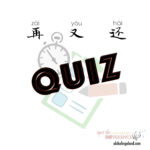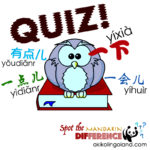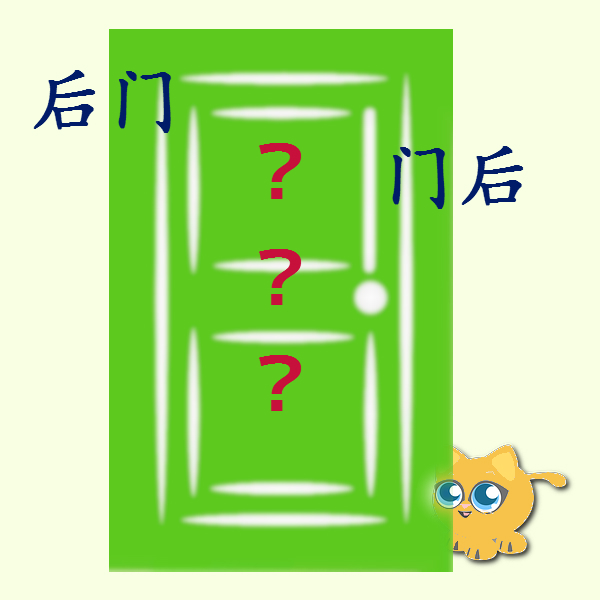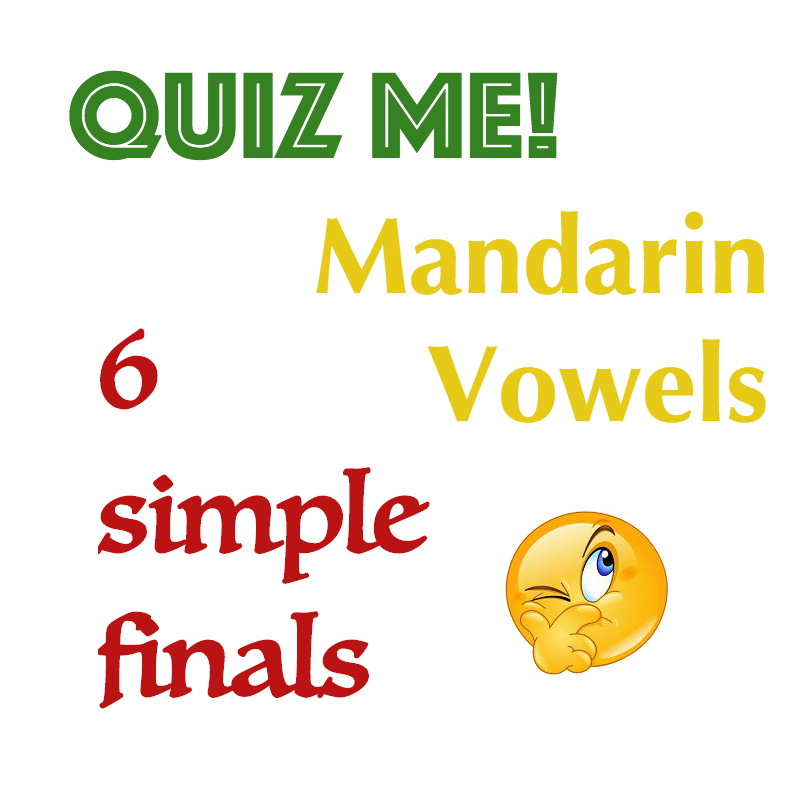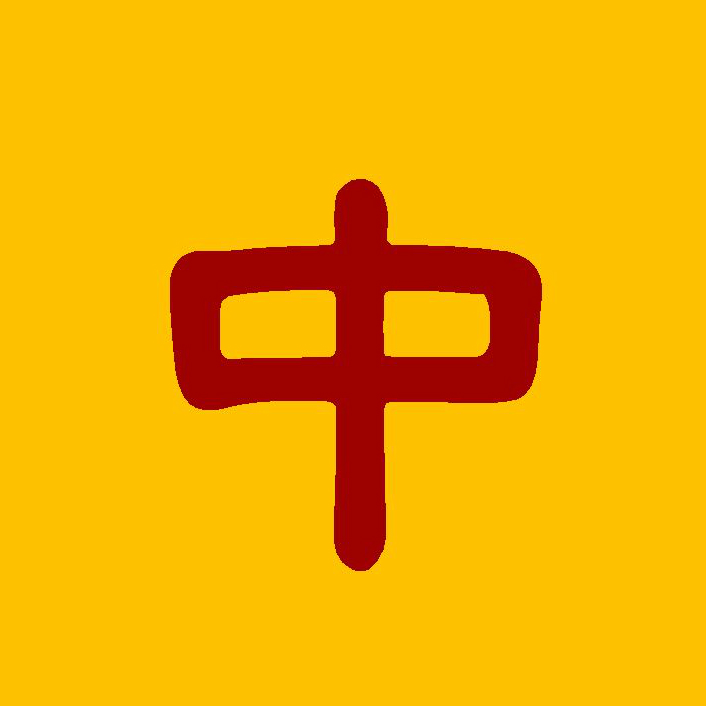Spot the Difference – 再 zài, 又 yòu and 还 hái
Why is the Chinese way of saying goodbye 再见 zàijiàn? You might know that the phrase literally means ‘again’ and ‘meet’, so put together, 再见 zàijiàn means ‘see you again’. Well then, how about using 又 yòu and 还 hái, which also, like 再 zài, have the meaning ‘again’? Instead of 再见 zàijiàn, can we say 又见 yòu jiàn or 还见 hái jiàn? Have you been confounded by the adverbs 再 zài, 又 yòu and 还 hái? Let’s find out how to make sense of them!
These three adverbs each have various meanings. In this post we’ll only be looking at the most confusing common meaning – usually translated as ‘again’ and ‘also’. They can be quite mind-boggling, but I’ll try my best to explain as simply as I can.
Let’s warm up by first looking at the sentences below.
1a)
Wǒ míngtiān zài gěi tā dǎ diànhuà.
我明天再给他打电话。
我明天再给他打电话
I’ll call him again tomorrow.
1b)
Wǒ jīntiān yòu gěi tā dǎ diànhuà le.
我今天又给他打电话了。
我今天又给他打电话
I called him again today.
1c)
Wǒ míngtiān hái gěi tā dǎ diànhuà.
我明天还给他打电话。
我明天还给他打电话
I’ll call him again tomorrow.
In these sentences, 再 zài, 又 yòu and 还 hái can all be translated as ‘again’. So what difference is there, if any? What are the inherent qualities of each?
Before we dive into that, we need to be first aware that there usually will be two parts in 再 zài, 又 yòu and 还 hái sentences. But this is not always so apparent because there may only be one clause instead of two. For example, the sentence I’ll call him again tomorrow. This is in fact the second part. The first part would be I called him today, which is inherently existing, but invisible. Even 再见 zàijiàn, which seems to exist solely on its own, actually carries the hidden connotation that we met today. So we met today would be the first part, and 再见 zàijiàn would be the second part.
Now on to the inherent qualities that we were going to look at. We’ll focus on three main points:
1) Independent vs Complementary
Phrases that use 再 zài and 又 yòu express entities that are independent in nature, while those that use 还 hái express entities that are complementary. What this means is that in 再 zài and 又 yòu sentences, the first and second parts are separate and independent of each other, or even contrary. They are individualistic dudes that express repetition. On the other hand, 还 hái, being complementary in nature, is used to express continuation, addition or extension. They are a collective bunch whereby the first and second parts together form a bigger unit. Because 还 has these layers of meaning, it is often translated as words like ‘still’, ‘also’, ‘yet’, ‘in addition’, ‘on top of that’, and so on.
2) Past, Present or Future
再 zài can be used only for future actions. 又 yòu can be used for past and present actions. 还 hái can be used for past, present and future actions. But here we need to be clear about one thing. In Mandarin, there are no tenses. So there is no such thing like past or present tense in Mandarin grammar, nor do we ever even think about anything like that when using the language. Here, ‘past’, ‘present’ and ‘future’ refer to simply the concept of whether an event has already happened, is happening, or will happen. Don’t be too fixated on past, present or future tense, because you might end up giving yourself a hard time, as we simply don’t think of things that way. You need to let go of the paradigm of English grammar and be a little more open and flexible when looking at Mandarin, because here, things function in quite a different fashion!
3) Simultaneous vs Non-simultaneous
In 又 yòu and 还 hái sentences, the first and second parts can coexist, or occur simultaneously, but in 再 zài sentences, the second happens only after the first has ceased.
Now with the understanding of the above principles, let’s go back and think about the examples I gave earlier. In 1a) 明天再给他打电话 Wǒ míngtiān zài gěi tā dǎ diànhuà and 1c) 明天还给他打电话 Wǒ míngtiān hái gěi tā dǎ diànhuà, since both are actions that have yet to be actualised, they mean the same thing, except for a slight difference in nuance. In the 再 zài sentence, it means that today I made a call, and that action is over and done with, but tomorrow I will repeat the same action again. The call today and the call tomorrow are separate and independent of each other. Whereas in the 还 hái sentence, the second call is like a continuation of the first call, rather than an independent repetition. So if we were to try to include the subtleties, maybe we could say that the 再 zài sentence sounds like I will do it once again, while the 还 hái sentence sounds like I am still going to do the same thing.
In addition, the 再 zài sentence can have yet another possible meaning – I will put off calling him till tomorrow. This is another important use of 再 zài, usually translated as ‘then’, ‘only then’, ‘after’. This is where it is useful to be aware of the existence of parts one and two that I talked about earlier. In this instance, part one would be I put off calling him today. So if we link the two parts together, we have: I’ll put off calling him today, then call him tomorrow.
So, to reiterate, even though they both talk about repetition, 还 hái expresses a continuation, whereas 再 zài expresses duplication of the action all over again. Additionally, 再 zài also can mean postponement of the action to a later time.
In 1b), 又 yòu is used because it is about an action that has already taken place.
Have a look at another set of examples.
2a)
Wǒmen míngnián zài cānjiā bǐsài.
我们明年再参加比赛。
明年再参加
We will take part in the competition again next year.
2b)
Wǒmen jīnnián yòu cānjiā bǐsài le.
我们今年又参加比赛了。
今年又参加
We took part in the competition again this year.
2c)
Wǒmen míngnián hái cānjiā bǐsài.
我们明年还参加比赛。
明年还参加
We will take part in the competition again next year.
This set is basically the same as the previous case. In 2a), we took part in the competition this year, the action is complete, and we will repeat the same action all over again next year. They are the same actions but separate and distinct. Alternatively, it could mean that instead of taking part this year, we are taking part next year. In contrast, 2c), the emphasis is more on continuing the same action. We did it this year, and we are still going to do the same thing next year. You can think of it like splitting an action into parts one and two. In 2b), since it has happened, we use 又 yòu.
So far it hasn’t been very complicated I hope? Now let’s move on to the next stage.
3)
Tā xuéxí Hànyǔ, ( ? ) xuéxí Yīngyǔ.
她学习汉语,( ? )学习英语。
学习汉语英语
Which adverb would fit into this sentence? First we have to consider what this sentence could possibly mean. Let’s take it to mean She studies Mandarin and (studies) English (too). In that case, both 又 yòu and 还 hái are absolutely fine.
3b)
Tā xuéxí Hànyǔ, yòu xuéxí Yīngyǔ.
她学习汉语,又学习英语。
学习汉语又学习英语
She studies Mandarin and (studies) English (too).
3c)
Tā xuéxí Hànyǔ, hái xuéxí Yīngyǔ.
她学习汉语,还学习英语。
学习汉语还学习英语
She studies Mandarin and (studies) English (too).
再 zài, however, would sound slightly off.
3a???)
Tā xuéxí Hànyǔ, zài xuéxí Yīngyǔ.
她学习汉语,再学习英语。
学习汉语再学习英语
She…?
Let’s recap the principles of 又 yòu and 还 hái. They are similar in that they both can be used for simultaneous and coexisting situations. However, 又 yòu is used for independent entities, so if we say 她学习汉语,又学习英语 Tā xuéxí Hànyǔ, yòu xuéxí Yīngyǔ, the two languages are seen as different and contrasting. On the other hand, 还 hái is complementary in nature, so if we say 她学习汉语,还学习英语 Tā xuéxí Hànyǔ, hái xuéxí Yīngyǔ, then the two languages are seen as related and similar (they are both languages, or are both something you learn). In other words, in 又 yòu, the focus in on the difference, whereas in 还 hái, it is on the similarity.
再 zài, however, doesn’t seem to fit very well here. As mentioned earlier, 再 zài is not used for coexisting situations or simultaneous occurrences. The first part of the sentence has to cease before the second part can occur. Therefore, if we say 她学习汉语,再学习英语 Tā xuéxí Hànyǔ, zài xuéxí Yīngyǔ, then it would mean She first studies Mandarin, then English. If that is the case, the sentence would sound better if modified into:
3a)
Tā xiān xuéxí Hànyǔ, zài xuéxí Yīngyǔ.
她先学习汉语,再学习英语。
先学习汉语再学习英语
She first studies Mandarin, then English.
Let’s look at another similar set. Try to think what they mean before looking at the translation.
4a)
Wǒ chī le píngguǒ, zài chī xiāngjiāo.
我吃了苹果,再吃香蕉。
吃了苹果再吃香蕉
4b)
Wǒ chī le píngguǒ, yòu chī le xiāngjiāo.
我吃了苹果,又吃了香蕉。
吃了苹果又吃香蕉
4c)
Wǒ chī le píngguǒ, hái chī le xiāngjiāo.
我吃了苹果,还了吃香蕉。
吃了苹果还吃香蕉
Both 4b) and 4c) mean that I ate (an) apple(s) and (a) banana(s). The slight difference is that in the 又 yòu sentence, the focus is more on the difference (apples and bananas are different types of fruit), whereas in the 还 hái sentence, it is on the similarity (them both being food/fruit). In 4a), it means that I will eat (an) apple(s), followed by (a) banana(s).
What about the following? Again, challenge yourself before looking at the translation.
5a)
Tāmen de háizi hěn kě’ài, zài hěn cōngming.
他们孩子很可爱,再很聪明。
可爱再聪明
5b)
Tāmen de háizi hěn kě’ài, yòu hěn cōngming.
他们孩子很可爱,又很聪明。
可爱又聪明
5c)
Tāmen de háizi hěn kě’ài, hái hěn cōngming.
他们孩子很可爱,还很聪明。
可爱还聪明
5b) and 5c) are both ok, but 5a) is not. By now can you tell why? Yep, because 再 zài cannot be used for coexisting situations.
What we have covered so far are the basic inherent qualities, but you probably know that things can’t be so simple. These adverbs each have their quirks and special traits, and we will look at one quirky trait of each of them.
Imperative 再 zài
6)
Jīntiān màiwán le, nǐ míngtiān zài lái ba!
今天卖完了,你明天再来吧!
明天再来
We have sold out today, come again tomorrow.
7)
Qǐng nǐ zài shuō yībiàn.
请你再说一遍。
再说一遍
Please say it again.
In imperative sentences, only 再 zài can be used. Some may think that since 还 hái can be for future events, it probably is ok here, but 还 hái cannot be used in requests or commands. 又 yòu cannot be used for future events, so all the more it is not possible here.
Predictive 又 yòu
8)
Míngtiān yòu xīngqī yī le.
明天又星期一了。
又星期一
It’s Monday again tomorrow.
9)
Míngtiān yòu yào shàng bān le.
明天又要上班了。
又要上班
I got to go to work again tomorrow.
I just said again that 又 yòu cannot be used for future events, but well, the shocking truth is, that isn’t really true! In instances where a future event is definitely going to occur, typically a recurring event, believe it or not, we use 又 yòu instead of 再 zài or 还 hái.
Annoyed 还 hái
10)
Nǐ hái lái!
你还来!
你还来
You’re here again!
In this scenario, the person saying this is probably not simply stating a fact that you are here again, but expressing slight irritation. Gosh, I can’t believe you’re here again! Let’s look at another one.
11)
Zhè shǒu gē dōu chàng le sān biàn le, hái chàng a?
这首歌都唱了三遍了,还唱啊?
都唱三遍了
You’ve already sung this song thrice, and you want to sing it again?
There is yet another important point that I think we should cover. What happens when modal verbs are involved?
Modal verbs like 要 yào, 想 xiǎng, 能 néng, 会 huì, 可以 kěyǐ, are auxiliary verbs that express possibility, ability, willingness etc. So how do we use 再 zài, 又 yòu and 还 hái with modal verbs?
12a)
Wǒ néng zài chī.
我能再吃。
能再吃
I can eat more.
12b)
Wǒ bù néng zài chī.
我不能再吃。
不能再吃
I can’t eat anymore.
12c)
Wǒ yòu néng chī le.
我又能吃了。
又能吃了
I can eat again.
12d)
Wǒ yòu bù néng chī le.
我又不能吃了。
又不能吃
I can’t eat again.
12e)
Wǒ hái néng chī.
我还能吃。
还能吃
I can still eat.
12f)
Wǒ hái bù néng chī.
我还不能吃。
还不能吃
I still can’t eat.
As we can see from the examples, 再 zài is usually placed after modal verbs , while 又 yòu and 还 hái are usually placed before modal verbs . In other words, 再 is attributed to only the verb , whereas 又 yòu and 还 hái are attributed to the whole set of [modal verb + verb] . It might be a little confusing, so do come back and have a look again if you find it difficult to grasp.
The above is just a general guide. Depending on how the modal verbs and verbs change, or, if the verbs take objects, the rules get blurred.
13a)
Shàng xīngqī měitiān dōu chī jiǎozi, zhè xīngqī bùnéng zài chī jiǎozi ba?
上星期每天都吃饺子,这星期不能再吃饺子吧?
不能再吃饺子
We had dumplings every day last week. We can’t eat them again this week, can we?
13b)
Shàng xīngqī měitiān dōu chī jiǎozi, zhè xīngqī bùnéng yòu chī jiǎozi ba?
上星期每天都吃饺子,这星期不能又吃饺子吧?
不能又吃饺子
We had dumplings every day last week. We can’t eat them again this week, can we?
13c)
Shàng xīngqī měitiān dōu chī jiǎozi, zhè xīngqī bùnéng hái chī jiǎozi ba?
上星期每天都吃饺子,这星期不能还吃饺子吧?
不能还吃饺子
We had dumplings every day last week. We can’t eat them again this week, can we?
In this case, 再 zài, 又 yòu and 还 hái can all be used. Placing 又 yòu and 还 hái after the modal verbs becomes possible. Why is that so? The reason is because we are looking at [again + eat dumplings] as one whole set, so we’re highlighting this whole set as one total complete unit.
Furthermore, when adding more emphasis, sometimes two modal verbs can be used together:
14)
Wǒ hái néng zài chī.
我还能再吃。
还能再吃
I can still eat more.
Let me throw in one more important aspect that will be very useful to know. Like I mentioned earlier, there are no tenses in Mandarin. We don’t get tense about tenses, because often, a sentence can be interpreted in multiple ways, so things are often not as clear-cut as English. There is, however, something called reference time that we abide by, but only on a subconscious level, as we don’t realise any of these underlying rules when we speak. Let’s look at this:
15)
Shàng xīngqī wǒ qù kàn tā, tā hái hěn jiànkāng. Méi xiǎngdào zuótiān wǒ zài qù zhǎo tā, tā yǐjing bìng de nàme yánzhòng le.
上星期我去看她,她还很健康。没想到昨天我再去找她,她已经病得那么严重了。
病得严重
When I visited her last week, she was still well. So it took me by surprise that when I went to see her again yesterday, she had fallen so ill.
In this sentence, even though my visiting her yesterday is a past action, we still use 再 zài. Before my second visit yesterday, there was the first visit last week, which is the reference time in this case. So since the reference time is last week, the visit yesterday becomes a future event. And hence, in such instances, we use 再 zài.
Let’s look at another interesting one.
16a)
Rúguǒ xiàcì kǎoshì zài bù jígé, wǒ jiù yào jiàn nǐ fùmǔ le.
如果下次考试再不及格,我就要见你父母了。
再不及格
If you fail the exam again next time, I will have to meet your parents.
16b)
Rúguǒ xiàcì kǎoshì yòu bù jígé, wǒ jiù yào jiàn nǐ fùmǔ le.
如果下次考试又不及格,我就要见你父母了。
又不及格
If you fail the exam again next time, I will have to meet your parents.
16c)
Rúguǒ xiàcì kǎoshì hái bù jígé, wǒ jiù yào jiàn nǐ fùmǔ le.
如果下次考试还不及格,我就要见你父母了。
还不及格
If you fail the exam again next time, I will have to meet your parents.
In this example, 再 zài, 又 yòu and 还 hái can all be used. Since this is a future event that has yet to happen, 再 zài and 还 hái fit in naturally. What about 又 yòu? This is not a past event, nor is it a future event that is definitely going to happen, so how can 又 be also a good fit? This is where the reference time comes into play. In the 又 yòu sentence, the speaker would be looking at it from a future reference point, which is the time when they decide that they have to meet the parents. When that happens, the student would already have failed the exam. And so, 又 yòu is also possible!
Fascinating isn’t it? I know it can be really confusing, but I hope you’re still hanging in there!
So now let’s go back to the very first question I posed at the beginning. Instead of 再见 zàijiàn , can we say 又见 yòu jiàn or 还见 hái jiàn? Well, they could appear as part of a longer sentence, for example:
17)
Wǒmen yòu jiàn miàn le!
我们又见面了!
又见面了
We meet again!
18)
Nǐ yǐhòu hái jiàn tā ma?
你以后还见他吗?
还见他吗
Will you continue seeing him in future?
However, they cannot be used on their own as a goodbye greeting. What do you think is the logic behind? Right, because when we say goodbye, the situation is such that the action of meeting has happened, is still happening, but is going to end right now. And there is the expectation that this meeting will be repeated some time in the future. Therefore, only 再见 zàijiàn is possible as a goodbye greeting.
再 zài, 又 yòu and 还 hái are all high-frequency adverbs, so naturally, they can be quite complex. The above are some of the most essential traits to know about them. I hope I have presented them well, and that you are now clearer about them!
Do try the exercise, coming up in the next post. And so, till we meet again. 再见 zàijiàn!
If you’ve enjoyed this, don’t forget to share, and do join me on Facebook, YouTube, Twitter, Pinterest!
